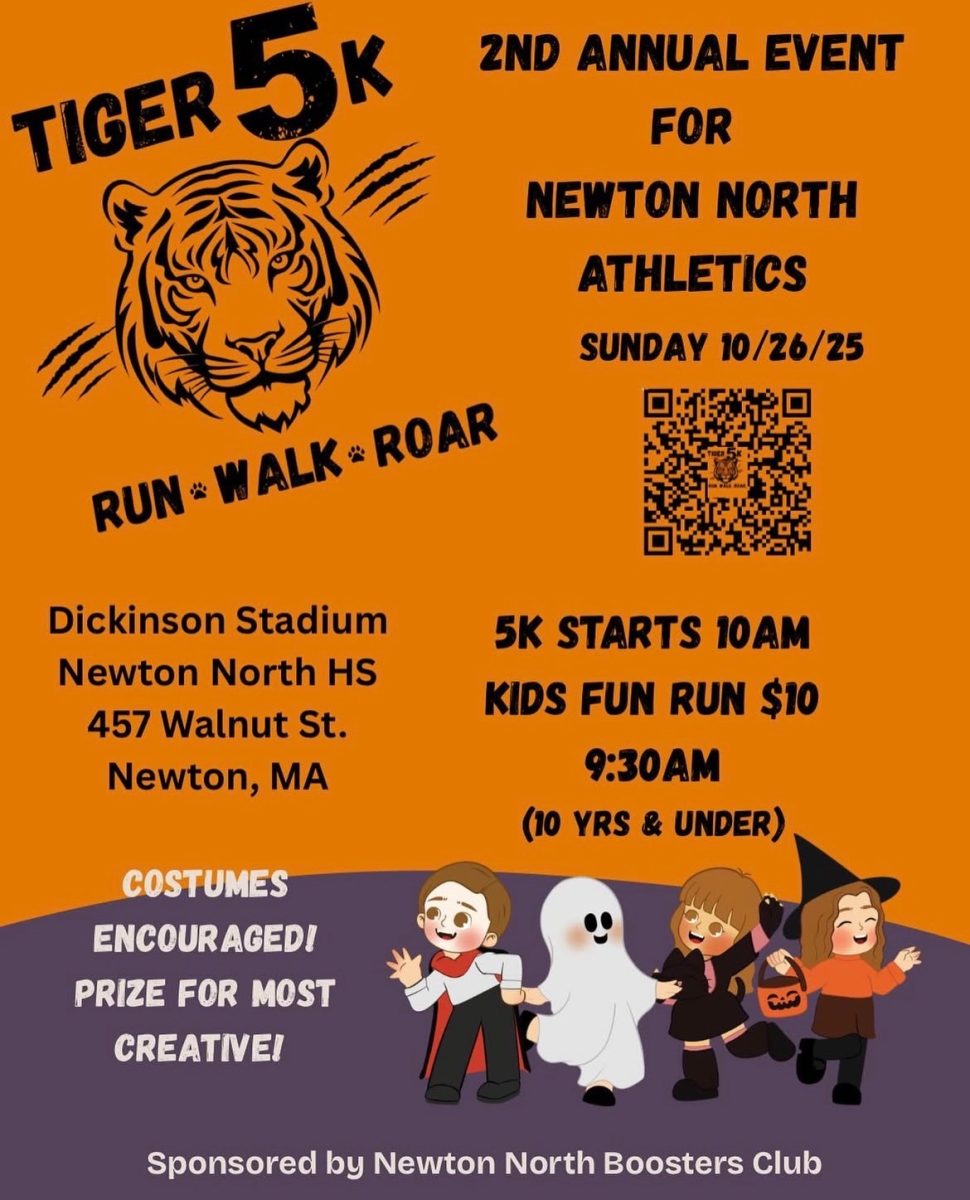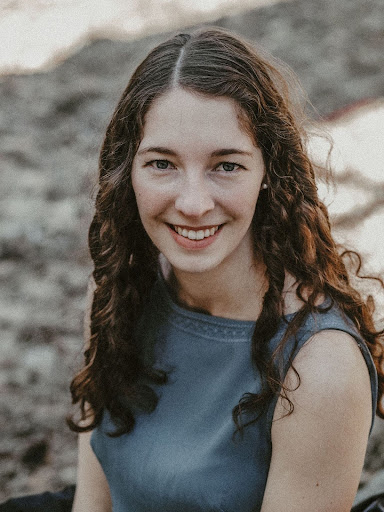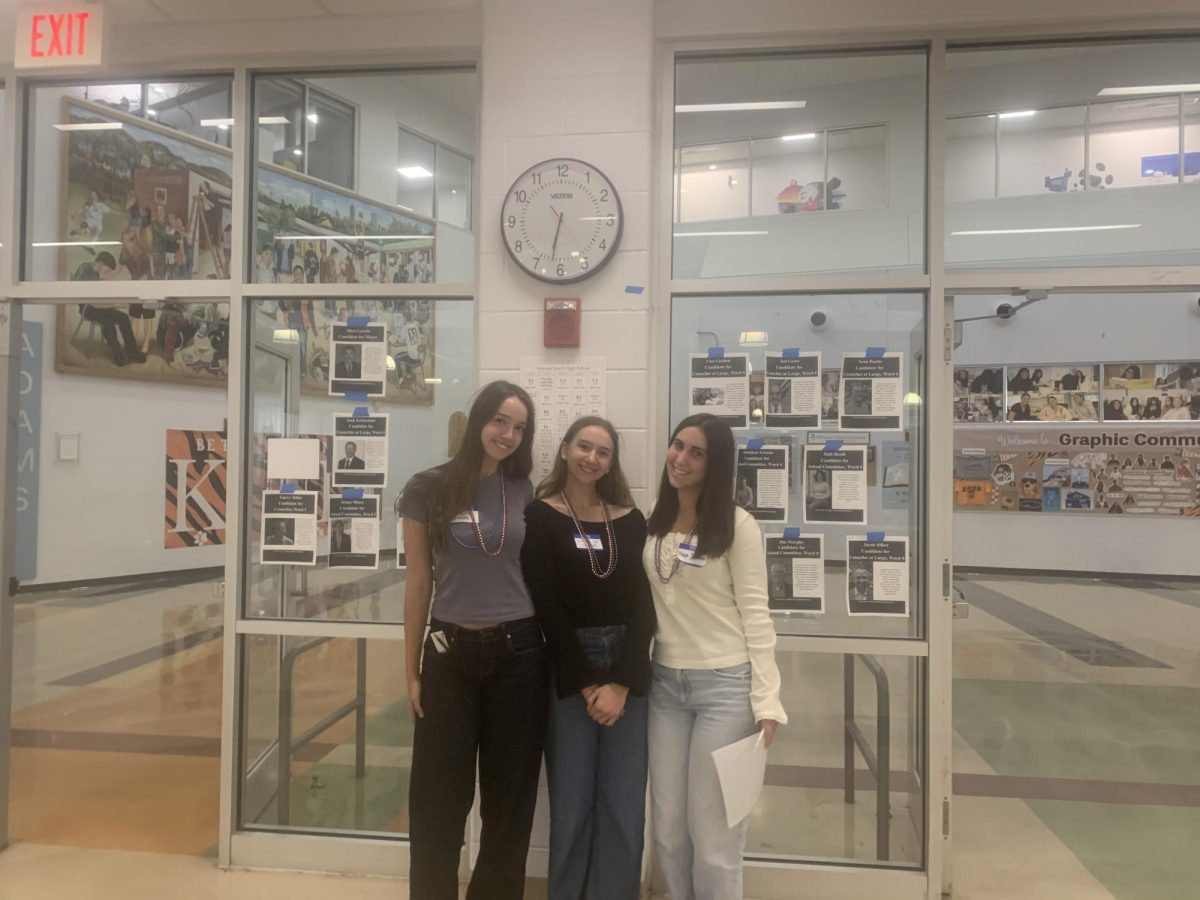A Block
by Lucy Lu
Five student panelists from the deaf community shared their experiences A-block Thursday Feb. 26 as part of Deaf Culture Day.
Senior Nikolya Sereda asked panelists questions in American Sign Language (ASL) about their experiences being part of the deaf community, which were then translated for the audience by interpreters.
Most of the panelists did not grow up in Newton, and, senior Noah Blakenship, a deaf student from Foxboro who plans to attend R.I.T after graduation, is among them. “I realized that I wanted more for my education,” he said. “The Learning Center wasn’t enough. I wanted to challenge myself.”
In the face of this challenge and the adversity, however, many students encountered struggles of being part of the deaf community, although they were nonetheless proud of their identity.
Melissa Mark, a senior with the cochlear implant who was the only one of the panelists to grow up in Newton, admitted that when she is unable hear someone repeatedly, they would sometimes disregard her. “It’s frustrating! I can’t hear someone four or five times and they just say ‘nevermind’, Mark said. It’s like I’m not important enough for them to make sure I understand what they’re saying.”
Another panelist, junior Asma Sheikh, moved from Pakistan to pursue a better education. “Growing up, people said ‘you can’t, you can’t, you can’t’, but no, I can, I just can’t hear. It’s really frustrating.”
Some even struggled with conflicting identities of being naturally deaf, but also being able to hear.
“My biggest struggle was not being identified as deaf because I could speak,” said senior Maryah Arzola, who also has the cochlear implant. “On the other hand, I am not accepted as hearing either because I am truly deaf.”
Despite the struggles, panelists also shared the positive sides of being deaf.
“The deaf community is small, but it’s very tight. Networking is easy because we share the same identity.
B Block
by Maya Metser
Five panelists presented their experiences being deaf as part of Deaf Culture Day B-block in the Little Theatre.
“I was born deaf, so it never felt different. I’m deaf, it’s who I am,” said Katie Prins, who found out at four months old that she is deaf. Katie Prins attended California State University and majored in creative writing. She then went to South Dakota for her masters degree.
Her favorite part about being deaf, she said, is the silence.
Another panelist, Brent Shiver, said, “At a young age, I tried to speak, but it didn’t work out. I would scream out loud but couldn’t hear myself. I decided to just focus on signing.”
He became deaf at two years old when he got meningitis. Shiver went to Northwestern University and has a PhD in computer science. He also received a wrestling degree, participated in the Deaflympics, and won gold twice. He now works at IBM as a software engineer.
He said, “Being deaf made me motivated to work harder and challenge myself. I would do more than my other hearing counterparts in school. I didn’t want people to look down on me.”
Ayisha Knight-Shaw was an acting major in college. She is now back in school for her masters degree. Her goal is to get her PhD.
She explained that being deaf is who she is. She added, “It’s not something I’m going to get frustrated over.” She said she loves that she can sleep through loud noises.
One of Knight-Shaw’s biggest challenges with being deaf was with her family. She said, “It’s exhausting. I want to have conversations with them, but sometimes they are not feeling up to signing.”
Another challenge, she said, is with people attitudes toward her. She said, “People say, ‘Oh, poor deaf person,’. But, no, I can do things, I can challenge myself. I can. I have a degree. I am not lesser than you.” She added that she sometimes uses art as a way to cope with negativity.
The last panelist, Sarah Fish, works at Boston University as a researcher and teacher. She was born deaf and found out at 5 years old.
She said, “My parents were heartbroken and cried a little. They asked experts what to do, who told them to send me to mainstream school. My mom was always concerned that she did something wrong.”
Fish said she would not want to be any different, and that deafness has given her so many opportunities. She has two political science degrees and a German masters degree in teaching. She works in linguistics and teaches.
When the five panelists were finished speaking, questions were opened up to the audience.
C Block
by Cate Waters
Deaf poet Ayisha Knight-Shaw told students stories and jokes familiar to the deaf community during c-block Thursday Feb. 26 as part of Deaf Culture Day.
Knight-Shaw stood up on the stage and signed, using an interpreter to communicate with students.
Knight-Shaw talked about how people in the deaf community have to find ways around not being able to hear. “We have to be creative,” she said, “we are visual people.”
Being deaf her whole life, Knight-Shaw told a funny story about how she didn’t know that different objects made noise until she was older. She spoke about a time when she didn’t know whipped cream coming out of a can made noise while whipped cream scooped out of bowl does not. She said, “I’m so paranoid that I will make noise.”
She told a joke that many deaf people know: A deaf man went out to buy food for his deaf wife late at night and when he returned he couldn’t remember what hotel room she was in. His solution was to honk his horn very loud. Every light in the hotel lit up except for one and that was his wife’s room.
Students also had an opportunity to go up on stage during an interactive portion of the assembly. Half of the students were deaf and the other half were hearing. She had them play a game which showed how deaf people, “have a lot of difficulty communicating with the hearing community.”
Categories:
Students talk, panelists present during Deaf Culture Day
March 8, 2015
0
Tags:
Donate to The Newtonite
More to Discover













































